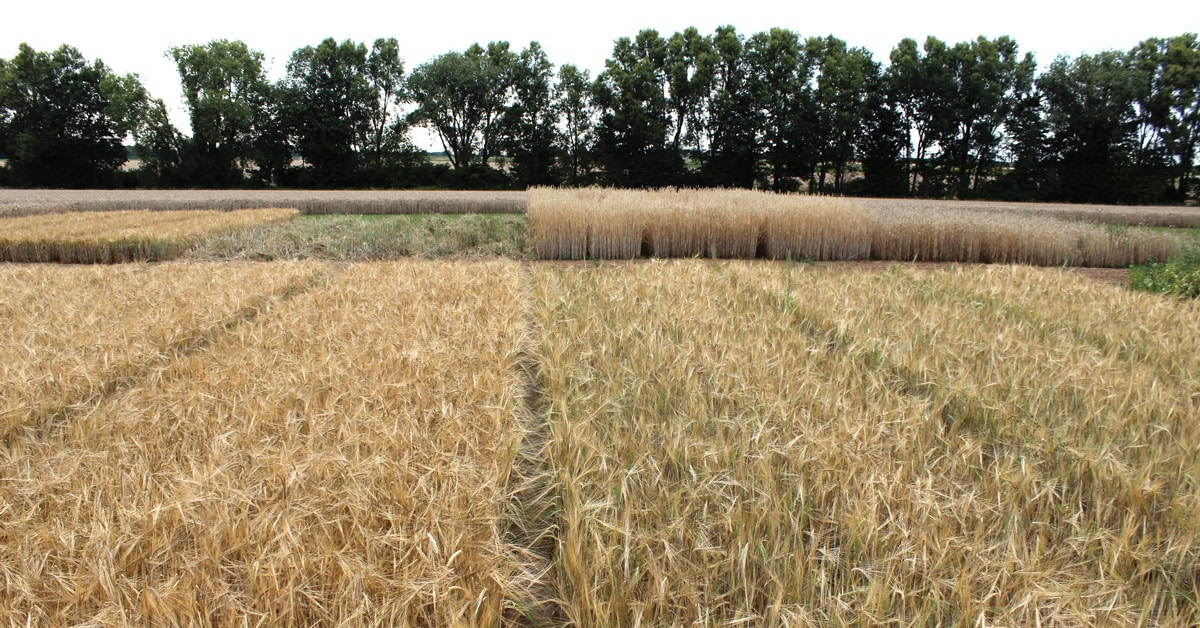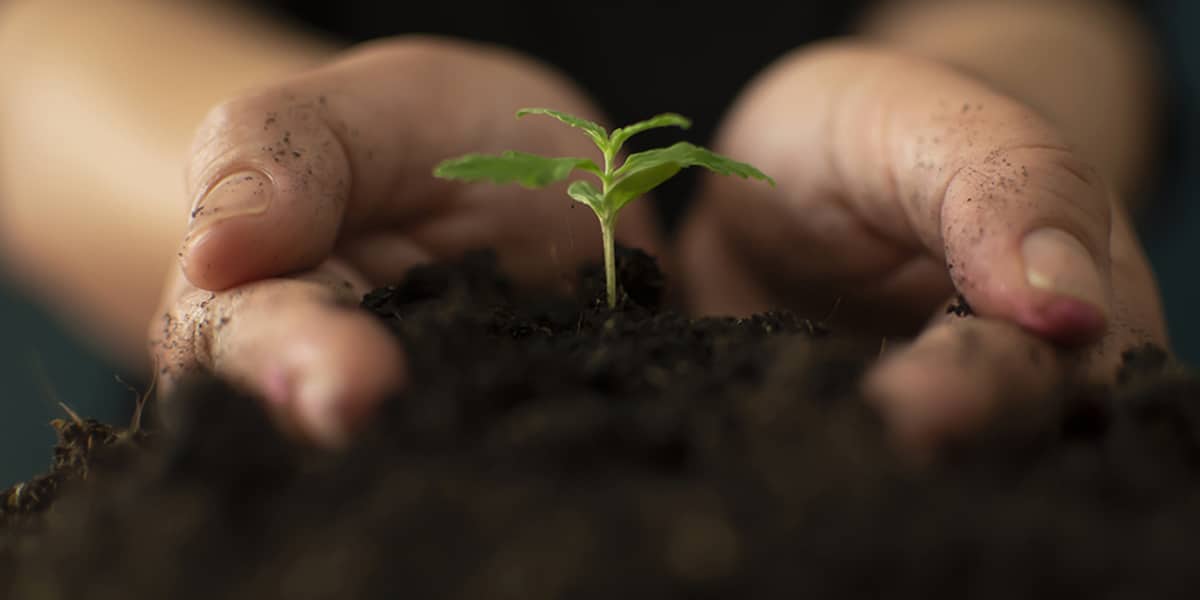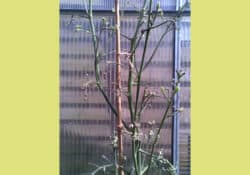

Organic farming leads to adaptations in plants’ genetic material
by GMWatch | May 28, 2024
Saved seed in organic systems progressively becomes more resilient to environmental stresses, compared with conventionally grown seed
Plants adapt genetically over time to the special conditions of organic farming, becoming more resilient than conventionally grown seed to stresses such as disease or a lack of nutrients or water, a long-term study conducted at the University of Bonn shows. Using the same barley seed but growing it in either organic or conventional farming conditions, the organically farmed barley became more genetically heterogeneous (varied) year upon year, whereas the conventionally farmed barley became more genetically uniform over time.
The study shows the importance in organic farming of saving seed on-farm and replanting it year after year, to enable the seed to progressively adapt to the local conditions. It also confirms the verbal testimony of organic farmers communicated to GMWatch. They say that while disease may affect a portion of a grain crop one year, the saved seed, when replanted the following year, will produce a crop that is resistant to the disease. In addition, the study underscores what we and our advisors have always said: that in spite of the current hype around genes, they are only part of any farming “solution”. Equally or more important is the farming system in which crops are grown. It’s not just climate-ready seed that will help us to meet the challenges of climate change, but climate-ready systems. And finally, it highlights the importance of fostering genetic variation in seed at a time when conventional farming is headed in the direction of even greater uniformity.
In the study, the researchers planted barley plants on two neighbouring fields and used conventional farming methods on one and organic methods on the other. Over the course of more than 20 years, the organic barley was enriched with specific genetic material that differed from the comparative culture. Among other things, the results demonstrate how important it is to cultivate varieties especially for organic farming. The results have now been published in the journal Agronomy for Sustainable Development.
At the end of the 1990s, Prof Dr Jens Léon started the experiment at the University of Bonn in the knowledge that it would run for a long period of time. His research group wanted to investigate the effects that farming conditions have on genetic material in plants. To this end, they carried out a complex long-term study over a period of 23 years at the Institute of Crop Science and Resource Conservation (INRES). “We first crossed high-yield barley with a wild form to increase genetic variation,” says Léon. “We then planted these populations on two neighbouring fields so that the barley grew in the same soil and under the same climatic conditions.”
The only difference was the farming method. Conventional farming was used in one of the fields, where the researchers used pesticides to combat pests, herbicides to eliminate weeds and mineral fertilisers to help ensure a good supply of nutrients. The researchers took a more ecologically sound approach in the other field: no pesticides, combating weeds using mechanical methods, and fertilising the soil with manure from stables. Some of the grains were retained every fall to sow the fields the following spring – using the organic grains on the organic field and the barley grown under conventional conditions on the comparative field. “We didn’t choose the grains based on any particular characteristics, however, but simply selected a small part of the harvest at random,” emphasises Léon’s colleague Dr Michael Schneider.
Analysing genome development in time-lapse
The researchers also analysed the genomes of the conventionally and organically farmed plants on a yearly basis. Every single gene can exist in a variety of different forms called alleles. For example, the human gene responsible for eye colour exists in the alleles “brown” and “blue”. The frequency with which certain alleles arise in a population can change over generations. Environmental conditions are one factor that plays a role in this process: Alleles that ensure plants thrive in their current environment are usually found more and more frequently.
The researchers identified two interesting trends in their genetic tests: In the first twelve years, the allele frequency in the barley changed in the same way on both fields. “Our interpretation of this finding is that the very diverse populations caused by a cross with wild barley were adapting to the local conditions,” says Dr Agim Ballvora, who also participated in the study. “After all, factors such as the climate, soil and especially length of day were identical for both populations.” However, the allele frequencies of both cultures diverged increasingly in subsequent years. In particular, the barley grown using organic farming methods developed gene variants that were less sensitive to a nutrient deficit or lack of water – i.e., alleles that influenced the structure of the roots. “One reason for this is presumably the strong variations in the availability of nutrients in organic farming,” says Léon.
Genetic heterogeneity facilitates the adaptation process
The conventionally farmed barley also became more genetically uniform over time, meaning that the genetic material in the individual plants grown on the field became more and more similar from year to year. However, the organic barley remained more heterogeneous. The allele frequencies of the organic culture also varied more widely over time. This resulted in some years being extremely favourable or unfavourable for some alleles. This could be because the environmental conditions fluctuate much more in organic farming than with conventional framing methods: If certain plant diseases take hold in one year, for example, the plants will rely most on those alleles that will protect them. The variability of the environmental forces acting on the plants seems to lead to greater genetic heterogeneity. “As a result, the plants are better able to adapt to these types of changes,” says Léon.
Overall, the results show that varieties developed specifically for organic farming adapt their genetic makeup to local environmental conditions, making them more robust and able to deliver higher yields over time. “Furthermore, it seems to make sense when cultivating plants to cross breed them with older or even wild varieties,” explains Léon. “Our data also indicate that this could even benefit conventional high-yield varieties.”
The new study: Michael Schneider, Agim Ballvora and Jens Léon (2024). Deep genotyping reveals specific adaptation footprints of conventional and organic farming in barley populations – an evolutionary plant breeding approach. Agronomy for Sustainable Development 44, article no 33. https://doi.org/10.1007/s13593-024-00962-8
Photo: AG Prof Léon/University of Bonn. The conventional barley is on the left and the organic barley on the right. Only experts can spot the differences with the naked eye. However, huge differences can be identified using molecular genetics.





0 Comments